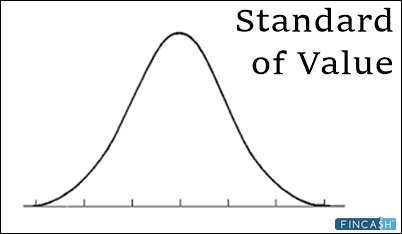
Table of Contents
Value Change
Value change refers to an adjustment made in the price of a stock, usually to reflect the total number of outstanding shares issued and withheld currently by investors.
The daily changes made in shares held by various investors are influenced by the daily changes seen in the demand and supply. These price changes are periodically adjusted to go at par with the Market changes.

The Value change enables a group of stocks to be weighed equally so that they can be evaluated easily. Moreover, the number of shares held by a certain investor can change daily. And this is the reason why the total number of shares held by a particular investor on a specific day needs to be updated every day to determine the price changes.
Understanding Value Change
A value change adjustment is made to equally with the stocks included within a single group. Investors can use value change in a number of settings, as it defines a particular kind of calculation used to evaluate and compare investment tools by considering the total shares held by investors.
The main objective of a value change is to ensure that shares belonging to a specific group or category are having equal weight. The theory also defines the steps that need to be followed while estimating the metric used to assess and compare several instruments by factoring in all the outstanding stocks, which don’t include reinvested shares.
Additionally, the total number of shares held by investors is estimated to determine the cash flow and Income per share. Investors can further use these metrics to gain information about the Earnings gained per share.
Talk to our investment specialist
Causes of Stock Price Fluctuations
The major causes of fluctuation stock prices include -
- The key market forces prevalent at a specific time.
- The demand and supply among the seller and buyer.
- If the number of people willing to sell stocks is higher than those willing to buy, the stock prices increase.
- Investors can evaluate their investment value depending on stock pierce movements.
- The earnings of a company affect its value and hence, its stocks. These earnings are estimated from the profits the company makes over a certain period of time, and this further determines whether it’s capable of meeting various operational costs.
- Note that the stock price is equal to the company’s market capitalization, and not its value. The company’s market capitalization is calculated by multiplying the number of outstanding shares by its current stock price.
Example of Value Change
Let’s say company ABC owns a total of 200,000 outstanding shares in the market. Now, let’s assume that the management decides to issue another 200,000 shares, thus doubling the total outstanding shares present in the public market. Therefore, the management decide to make a value change to match the number of outstanding shares.
Furthermore, it may consider the number of stocks that are currently at the hands of the investors while making price adjustments.
Hence, modifying each share price is weighed equally to the stocks present in the same class or group.
All efforts have been made to ensure the information provided here is accurate. However, no guarantees are made regarding correctness of data. Please verify with scheme information document before making any investment.












